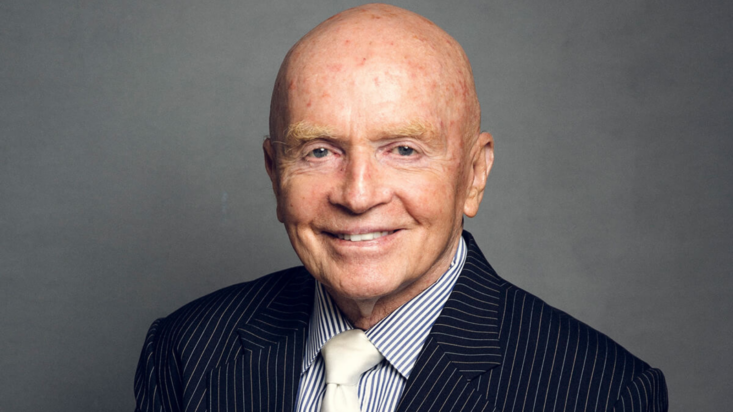No slowing down for the Indiana Jones of Emerging Markets
When Mark Mobius started investing in emerging markets, in 1987, the term had only just been coined by the World Bank, and it was understood as referring to about six countries: Hong Kong, Mexico, the Philippines, Malaysia, Singapore and Thailand.
That was when funds management legend Sir John Templeton asked Mobius to run – out of Hong Kong – the newly formed emerging markets division at Templeton, Galbraith & Hansberger. In 1992, Wall Street investment company Franklin bought that firm, creating Franklin Templeton, into which Mobius transferred his portfolio, launching the Templeton Emerging Markets Fund.
“I really didn’t know what I was getting into,” Mobius tells The Inside Adviser. “In those days, most countries did not welcome foreign investment.”
But by the time he left Franklin Templeton in 2018, the US$100 million fund started in 1987 had grown to US$60 billion – and there were 70 countries potentially on an emerging markets fund manager’s menu.
At the time, many might have expected Mobius – then 79 – to retire. But with two ex-colleagues from Franklin Templeton, he soon hung out his own shingle, at London-based firm Mobius Capital Partners. The firm manages about US$300 million ($476 million) in two vehicles: a closed-end London Stock Exchange-listed trust, Mobius Investment Trust plc, with £161.1 million ($307.7 million) in net assets, and the balance in an open-ended vehicle, the Mobius Emerging Markets Fund, domiciled in Luxembourg and designated in US$ or euro, with institutional, founders’ and retail units.
Mobius is not the portfolio manager – his co-founder Carlos von Hardenberg is – but he still travels the world from his Dubai base, spending an average of 250 days a year on the road, researching companies, identifying investment targets and simply checking-out economies “on the ground,” which he considers essential for an emerging markets investor. At the ripe old age of 86, the man widely referred to as the “guru” of emerging markets has seen a lot of change.
“When I first started investing in emerging markets in the 1980s, the countries were very low-income, they relied heavily on the developed world for trade and capital. They were characterised by high debt levels, poor governance – at both the national political level and the corporate level – and inexperienced finance ministers and central bankers. The companies were either financials, resources exporters or focused on cheap manufacturing,” he says.
But the emerging markets have “come a long way” in four decades. “Places like Taiwan and South Korea are just completely unrecognisable from my first visits 50 years ago,” says Mobius, who first “fell in love with Asia” on a Syracuse University scholarship to Japan in 1960.
“They are wealthy democracies, and the companies are now as sophisticated as it gets, in terms of the high-end precision manufacturing they do, the quality of their management teams, their employees, and their governance. In fact, I believe some of the management teams in our portfolio, and that we visit, are better than their western counterparts,” he says.
“People might think that’s because these people have had access to western management education, but that’s not always the case. It’s because emerging markets management teams have had to survive in a very difficult environment; They have challenges which are probably more complex than any American or Australian firm, and so forth. These managers are really very, very capable operators.”
The investment team looks for “dynamic mid-sized companies” in some of the fastest-growing economies in the world, but which are not on the radar of other fund managers – meaning no mega-cap stocks. They should be involved in, or get a market edge from, leading-edge technology. There are strict fundamental criteria, for example: a debt-to-equity ratio of less than 50 per cent; earnings per share (EPS) growth that averages at least 10 per cent over the last five years; a daily turnover of at least US$1 million a day; and a return on invested capital (ROIC) of at least 20 per cent, which Mobius says is a “tough hurdle”. This process identifies “resilient business models which are undervalued and mispriced,” he says. Only 26 stocks currently make the grade.
At present, the largest geographical holding in the fund is Taiwan, at 22 per cent, followed by India (19.4 per cent), South Korea (15.7 per cent), Turkey (7.8 per cent), China (6.7 per cent), Brazil (6.1 per cent), the US (5.6 per cent), Vietnam (3.7 per cent), South Africa (2.9 per cent), Kenya (2.6 per cent) and Thailand (2.4 per cent). The cash holding is 5.1 per cent.
Sector-wise, IT is the big overweight, at 58.4 per cent; followed by Healthcare (14.2 per cent), Industrials (7.7 per cent), Consumer Staples (6.6 per cent), Consumer discretionary (2.9 per cent), Communications (2.6 per cent) and Financials (2.5 per cent).
I ask Mobius whether he ever thought he would end up running what largely resembles a technology fund. “We don’t consider ourselves a tech fund,” he says. “It just so happens that the companies in which we invest, that meet our criteria, have tended to be these fabulous tech companies in Taiwan and Korea. But we don’t want to restrict ourselves to any one sector: for example, we also hold a jeans manufacturer in Turkey, and we hold Vinamilk, the largest dairy products company in Vietnam. But we won’t hold financials or resources companies, because they don’t meet our criteria.”
Portfolio turnover is about 20 per cent, he says. “We are definitely not traders. Our average holding period is around three to four years. In the last year, we’ve probably only done maybe ten transactions, and a lot of that was adding to or subtracting from existing holdings.”
The firm incorporates environmental, social and governance (ESG) factors into its investment process, but crucially, says Mobius, it also assesses corporate culture. “We believe that culture is a crucial and often-missing component. While there is strong evidence showing that ESG leaders outperform their peers, we believe that owning companies with strong corporate cultures gives us an additional driver of outperformance in the long term.”
The firm sets out to drive this by actively partnering with its portfolio companies to drive improvements in governance and operational performance. “It’s very much an ‘active ownership’ approach: we want to help create value, by delivering a clear ESG pathway for our portfolio companies,” Mobius says.
Lower ESG standards in emerging and frontier markets offers the firm very wide scope for this active engagement approach.
“That’s another reason why we believe in a concentrated portfolio – it allows us to develop a customised engagement strategy for each company. We’re very pleased to find that many of these companies are very happy to work with us on that. It’s quite gratifying.”











